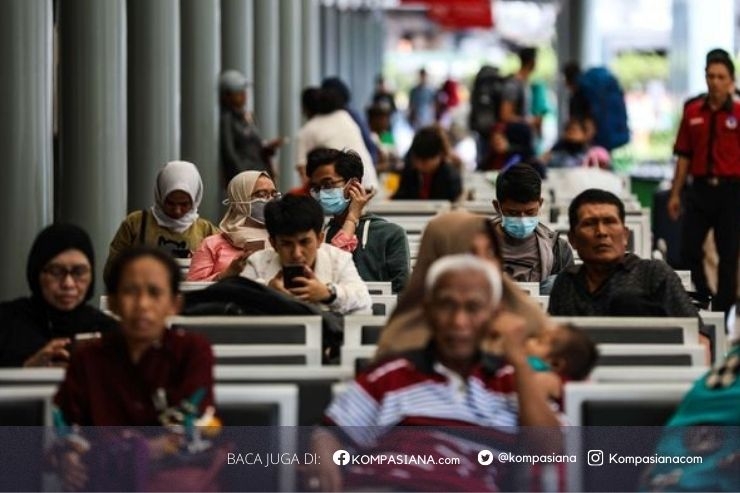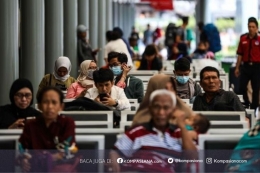Aligning of Oil and Gas Law with Energy Law
By : Sampe L. Purba
Law No. 30 of 2007 (Energy Law) is a basis - both as the main upstream source and the end stream - of Indonesia's energy policies. This law includes the normative recognition and regulation on energy as the means for economic activities and national resilience.
As the upstream, this law covers both the non-renewable energy such as the hydrocarbon (oil, gas, or coal), and the renewable energy such as nuclear, geothermal, solar, wind and hydro (waterfall) energy.
As the downstream, Energy Law regulates the management of energy, including the supply, utilization, and operation in a fair, sustainable, rational, optimized, and integrated manner.
This law also broadly governs energy regulation, energy buffer reserves, and energy prices, as well as created a new institution named the Indonesian National Energy Council (Dewan Energi Nasional - DEN). The main task of DEN is to design and formulate national energy policies to be endorsed by the government upon the legislative's approval.
Government Regulation No. 79 of 2014 concerning National Energy Policy transforms the paradigm on energy as the main income to be the driver of development capital. The messages from the National Energy Policy are firmly asserted.
Firstly, energy independence and resiliance shall be achieved by making energy as the national development capital. Secondly, optimizing energy utilization for national economic development, domestic value adding, and manpower absorption.
What about the Oil and Gas Law?
The Oil and Gas Law ( Law No. 22 of 2001) that was born preceding its parent (Energy Law), apparently has different accentuation. This law exists as a response to demands for reformation. This law slightly degrades the role of oil and natural gas which in the previous law (Law No. 44 of 1960) positioned oil and natural gas as defense instruments as well.
At present, oil and natural gas have solely become the strategic natural resources and vital commodity. The Agency for Upstream Oil and Gas Management (BPMIGAS) was established as a new institution implementing the government's managerial authority in contractual relations with upstream oil and gas investors.
Although the State still plays a role, but this law was designed heavily to be in line with the market's demands. In its implementation, these two roles do not always run smoothly. There is a role of the State that needs to be maintained as the implementation of Article 33 of the 1945 Constitution, but at the same time, the spirit and soul of other laws introduced in the beginning of reformation era feel intense.
The essence of Anti-Monopoly Law, the Regional Autonomy Law, and the State Finance Law were grafted here and there, making this law tough to fully implement. It becomes less agile and contains full of interpretation rooms between the public domain or corporate law. In several occasions, it is uncertain which one the leading sector is.
No less than four times the Oil and Gas Law was submitted for material review to the Constitution Court (Mahkamah Konstitusi -- MK). There were more than 20 allegations (posita). The material reviews were brought forward by various groups such as legal activists, individual politicians, parliamentarians, religious organizations/ communities, to even parking attendants. The most phenomenal one was the lawsuit in 2012 which led to the dissolution of BPMIGAS.
In accordance to the verdict of the Constitution Court (legal consideration point 3.22), while waiting for the new regulation, the functions and duties of BPMIGAS to be carried out by the Ministry (in this case, Ministry of Energy and Mineral Resources). Then, the Government formed the Special Task Force for Upstream Oil and Gas Management (SKK MIGAS), while waiting for the Oil and Gas Law's revision.
Since 2012 until present (2019), the plan for Oil and Gas Law revision has always been one of the National Legislation Programs. It has always been a hot topic towards the end of the parliamentary session. It also becomes much more intensed when national general election season approaching.
The world of oil and gas industry has been expecting new Oil and Gas Law, and it is expected to be comprehensive, visionary, flexible, and unambiguous. The spirit and vision of the Energy Law shall be reflected in it. As a matter of fact, the national energy policy has nailed the echo changing the paradigm on energy as the main income to be the development capital.
What does it mean then? The main and most important thing is to shift the viewpoint of the success of the oil and gas industry from the state revenue regime to the development of business regimes and increased value added, shifting from an annual and short-term performance perspective towards a long-term and sustainable business horizon.
Efforts to discover new oil and gas reserves, technology transfer, strengthening national capacity, and macro value added should be more prominent to the public rather than the annual 'ritual' discussion of macro assumptions in legislative proceedings that merely more concerns with the liftings target, cost recovery, and oil price assumptions.
Oil and gas world faces uneasy future challenges. In fact, Indonesia's oil fields are categorized as old fields with high water cut and aging infrastructures. The potential prospects are the deep sea and eastern regions which are technologically more expensive and the locations are more remote. On the other side, neighboring States around the region offered variative and competitive fiscal terms.
The government's effort to introduce gross split recently is one of the innovation responding to the market sluggishness.
Apart from oil and gas sector, the current world trend is to focus on renewable energy and clean energy through the massive campaign of carbon pollution reduction.
The new Oil and Gas law shall be designed to be able adapting with millenial era's demands. Global data exchange within this industrial technology revolution 4.0 or the further steps, for example. It has its own protocols and rulings. Having stiff regulation and nationalism protection within the industry will only decrease our competitive and innovative powers amidst the world that keeps moving forward exponentially. This is the time when the wisdom, statemanship, and vision of our legislators and stakeholders are called on and put into test.
The incoming Oil and Gas Law should contain much more substantial contents. There must be a clear demarcation between the domains of government and business. That applies in the same manner to the context of licensing, technical and environmental standardization, as well as the institutional management.
It shall be clear, measurable, and provides certainty. Overlapping of authority must be avoided. Authority and responsibility description of the regulator, mining authority, and the contractor hs to be distinct. By taking into account the characteristics and typicality of different industries, presumably the Law of Financial Services Authority might be able to be used as reference model.
Jakarta, February 2019
Author -- Practitioner of the Energy Society
Indonesian version published in Media Indonesia 8 Pebruary 2019 under the title " Penyelarasan Undang undang Migas dengan Undang Undang Energi"
Baca konten-konten menarik Kompasiana langsung dari smartphone kamu. Follow channel WhatsApp Kompasiana sekarang di sini: https://whatsapp.com/channel/0029VaYjYaL4Spk7WflFYJ2H








